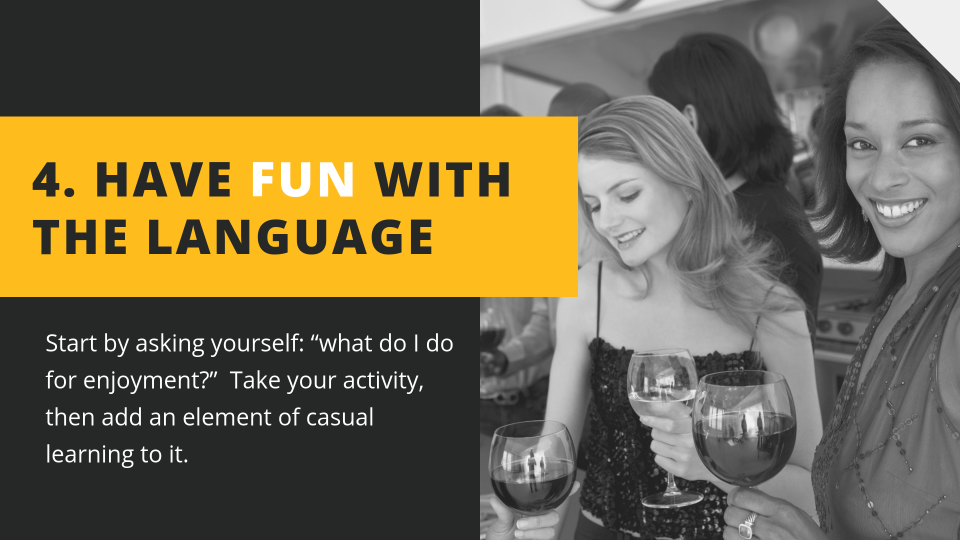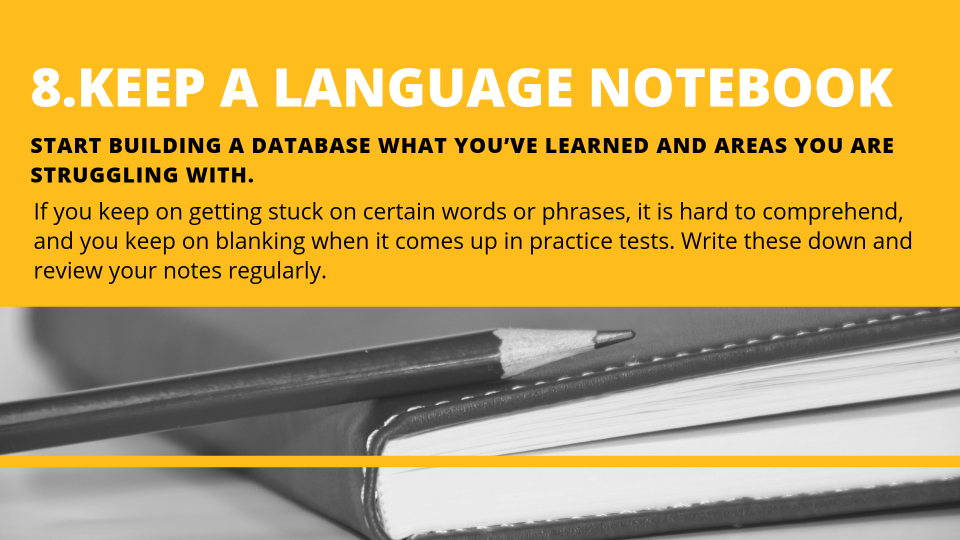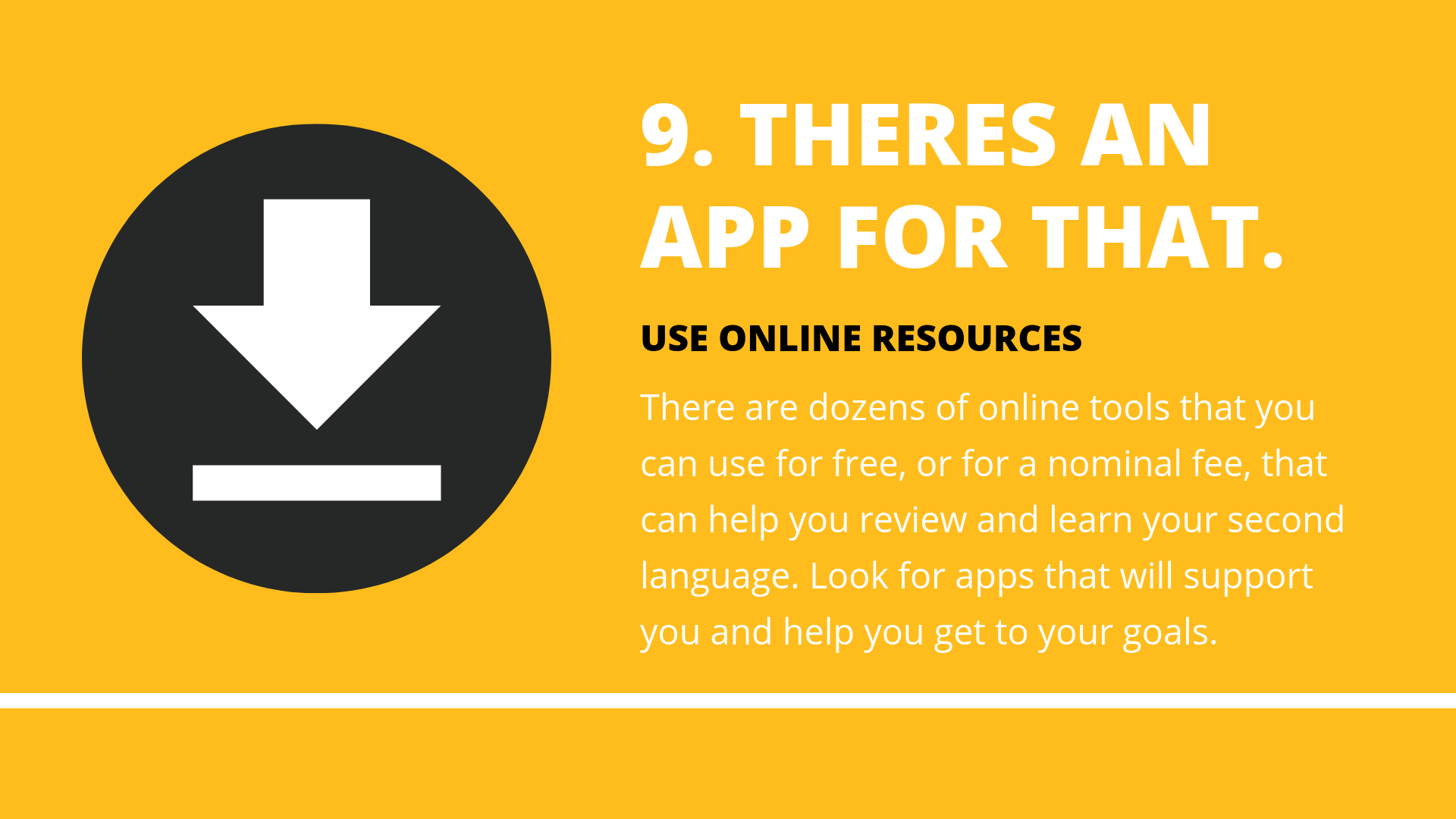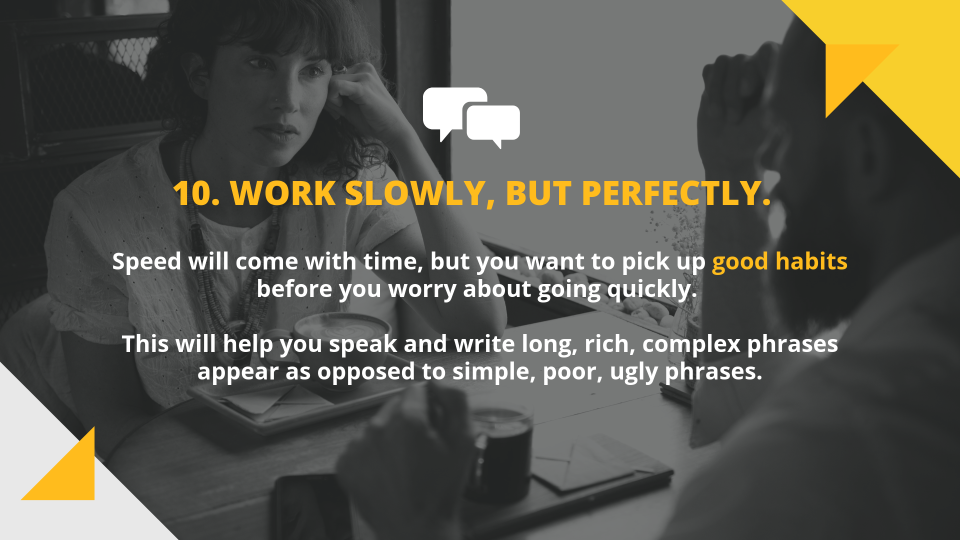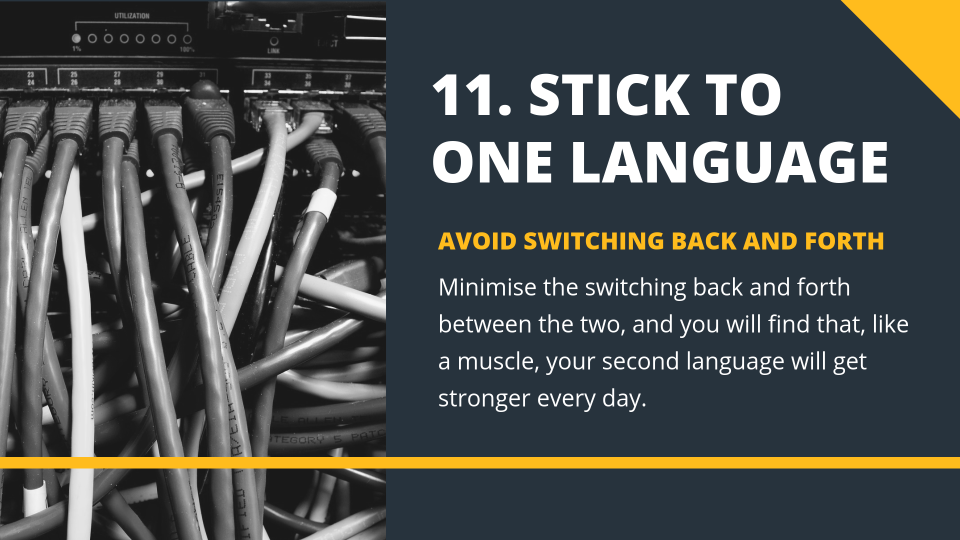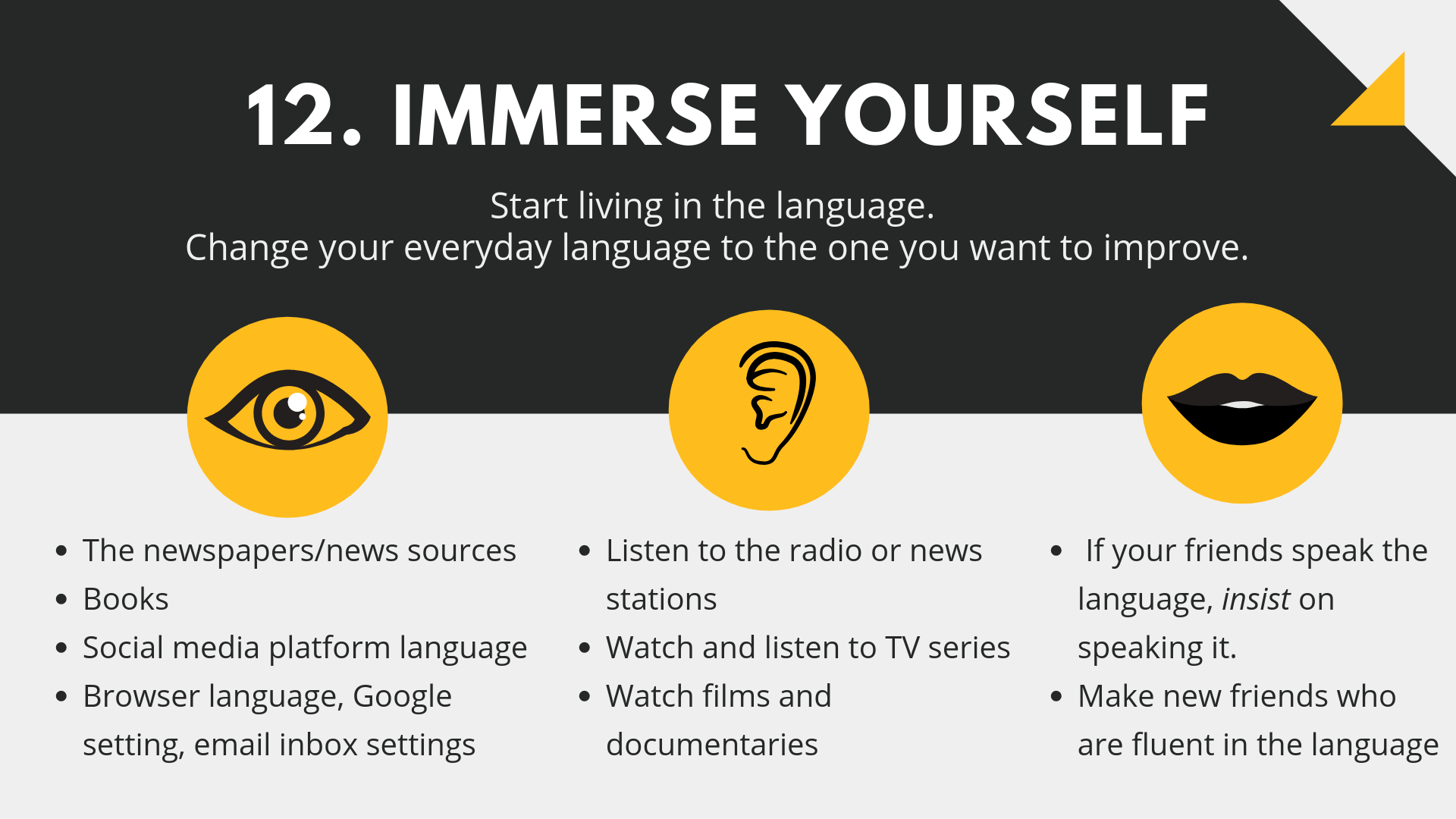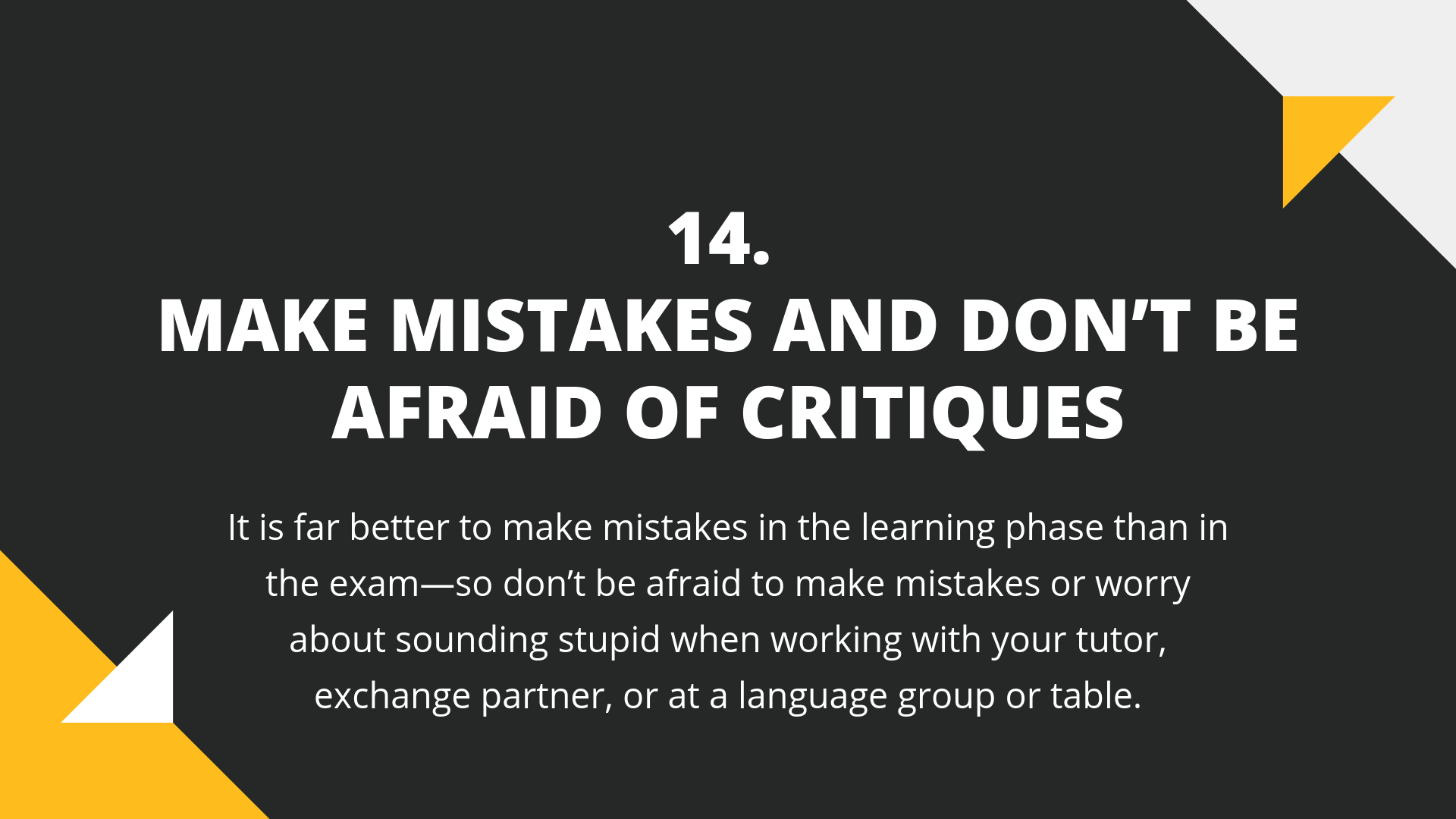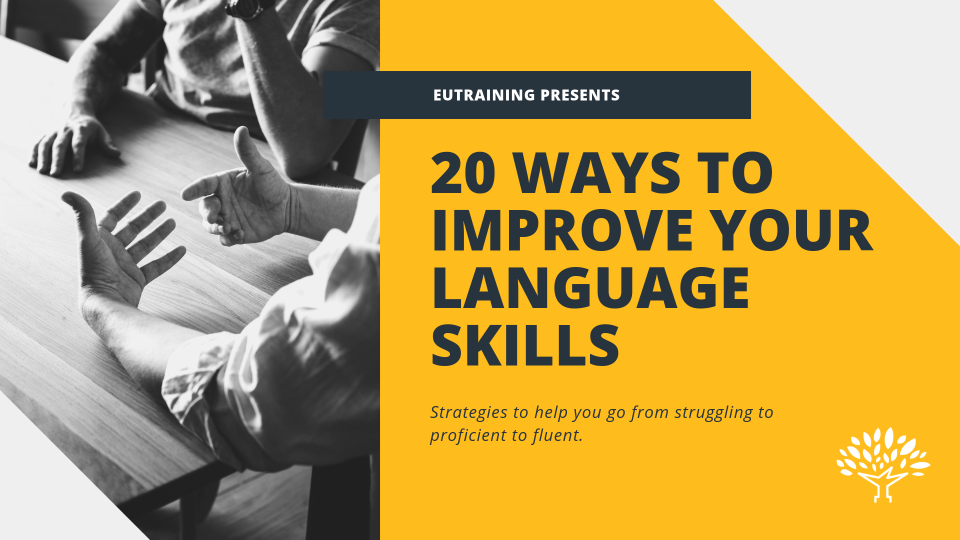
How proficient are you in the languages you’ve selected to undertake your EPSO competition in?
Did you learn one of the languages in school, but now you’re a bit rusty on the vocabulary you once knew?
Can you comfortably hold a conversation for over an hour without feeling mentally fatigued?
Are you completely fluent, but could use a bit of a brush-up?
Language skills play a big part in EPSO selection processes and significantly affect your ability to even work at an EU institution. You need to meet strict language requirements to be eligible to even apply for an EU vacancy.
If you want to participate in an EPSO competition at a minimum, you must be able to communicate both orally and in writing at a proficient level in two official EU languages.
A quick overview of the EPSO language processFor most competitions you’ll be asked to pick a Language 1 and a Language 2. Language 1: you will generally have to select one from the 24 official EU languages and have a thorough knowledge (Level C1) of that language. Language 2: must be different from your selected Language 1 and most likely be required to have a satisfactory knowledge (Level B2) of that language. Usually, EPSO will specify in the notice of competition what this language must be - generally English, French and/or German (basically the working languages of the EU Institutions). For language competitions (such as for Translators), you will be expected to have a perfect knowledge of one official EU language (Level C2) and a thorough knowledge of a second and third official EU language (Level C1). |
So, you’ve filled out your EPSO application form and chosen your languages, and probably already have a good working knowledge of the languages you’ve selected - but are you fluent enough to excel in the exams?
Let’s find out!
To start, take a moment to review this table and figure out what your level is.
(Click table to enlarge)
-
A1 and A2 - Beginner: you know a handful of words and phrases and can write simple words or short sentences.
-
B1 and B2 - Intermediate: you can speak reasonably well, and understand the main points of what is being said, you can write in the language and understand the grammar rules.
-
C1 and C2 - Fluent or Native Speaker: you understand everything which is being said, and can speak comfortably. You are able to read and write well.
Now that you know where you’re at, this article will cover the strategies that will help you improve based on your level, as well as strategies that are helpful no matter what your level is.
The 20 strategies below will help you go from struggling to proficient to fluent.
For All:
1. Assess where your weaknesses are
For A1 + A2: beginner, understands a little bit, but far from fluent.
7. Start by reviewing/learning high-frequency words and phrases
10. Work slowly, but perfectly
For B1+B2: intermediate, reasonably fluent, but needs help with proficiency, pronunciation, and vocabulary.
14. Make mistakes and don’t be afraid of critiques
15. Get better at reading comprehension
For C1 + C2: fluent, but needs a brush-up and focus on EU specific vocabulary.
16. Focus on language content that’s relevant to you
17. Get your EPSO application and language skills critiqued by an EPSO expert
18. Practice with EU Training’s Verbal Reason Tests and Language Comprehension Tests
19. Find a language exchange partner
20. Join local language exchange groups and tables
ALL LEVELS:
5 tips on improving your language skills
1. Assess where your weaknesses are
To know where you are going, you have to know where you are starting from.
If you’ve read the above grid, you probably have a good idea of what your level is. Now the first step is to figure out where your areas of weakness are.
That way you can focus on them directly, which will have the greatest impact on your level of proficiency.
Ask yourself the following questions:
-
What is my weak point when it comes to my comprehension?
-
Which area makes me nervous?
-
What do I struggle with the most?
-
When I do a practice exam, where do I go wrong?
-
What vocabulary do I need to master in order to do well in the exam?
-
Where do I commit the most mistakes?
Once you see where you need to go, it becomes easier to plan your route there.
2. Set clear goals
The problem with making your goal “improve my French fluency”- or whatever language it is that you would like to work on - is that it is far too broad.
Instead, narrow your goals down and make them specific. Set smaller goals that you can measure along the way.
Each time you achieve one of your smaller goals, you can move on to the next one. This will give you the motivation to continue advancing, which will help you reach your overarching goal of fluency.
So, start with the big goal: “I want to be able to present confidently in my Language 2 (not mother tongue) at the EPSO Assessment Centre”
Here are some examples of goals:
-
Within one month acquire vital lingo used regularly within the EU institutions.
-
By [date] be able to read complex reports fluently in my Language 2 and understand all the elements.
-
By [date] be able to read complex reports quickly in my Language 2 and understand all the elements.
-
Have 3 language tutoring sessions and attend at least 5 conversation tables.
-
By [date] be able to read a [subject] report and understand all the elements.
-
By [date] be able to write a 4-page document about [subject] in my target language.
The goals should be achievable and progressive. Don’t go from barely being able to read an article to “In three weeks, be able to write a 4-page document about the EU Space Programme in French.”
Take it in steps, and be clear about what you want to be able to do.
3. Make a plan
Once you have your goals, break them down into practical steps of how you are going to get there.
-
What activities are you going to do?
-
What classes should you take, and when/where are they available?
-
How many practice tests will you need to complete?
-
Will it be helpful to book a personal coaching session with an EPSO expert?
-
What resources are you going to need to get ahead?
You are building your own, personalised strategy that will help you get to your goals, so make it as detailed as you can, including what activities you can do to help you reach your goal.
Maybe one thing won’t work immediately. Say to yourself “Ok, this isn’t working for me...yet” and add it to your strategy later on down the line.
Once you have a clear idea of how you are going to get to your goals, it is time to jump in and get started.
READ THIS: The book “Fluent Forever: How to Learn Any Language Fast and Never Forget It”, is jam-packed with strategies that can help.
4. Have fun with the language
There are lots of things on this list that will require you to be focused and alert - there is a level of intensity that they will require.
However, working your brain at 100% can become exhausting, and when you are exhausted, you are more likely to give up because it feels too hard. The solution to this isn’t to stop studying, but to balance it out by having some fun with it. Choose some relaxing activities - you will still be learning, but while doing things you enjoy.
Start by asking yourself: “what do I do for enjoyment?” Take your activity, then add an element of casual learning to it.
-
Like reading books - look for books in the language adapted to your level.
-
Enjoy going to relaxing walks in the forest - listen to a language podcast or audio course while you walk.
-
Listening to music - search for music in the style of music that you like in the language you are learning, and build playlists that you enjoy listening to.
-
Going out for a few drinks - join local language tables, or find an exchange partner than go out for a few drinks while practicing.
-
Watching sports - listen to the commentary in the language you are learning.
-
Going for a run or working out at the gym - put on energising music in the language you are learning.
5. Be consistent
When we first make the decision that we are going to become fluent, we are full of energy and determination. However, our motivation can fade, and suddenly we are making excuses as to why we can’t practice today, and eventually, we stop studying altogether.
Perfecting a language takes persistence and consistency. Don’t wait until a week before your exams start to try and cram it all in and hope for the best. It can take a few weeks before you begin to see a significant difference, so leave yourself time and stick with it.
Set aside time every day for language practice. Day-by-day those minutes and hours will add up, and you’ll be amazed (and proud) at how much you’ve advanced and how much easier the practice tests are.
You’ve got to stick with it.
TOP STRATEGIES FOR A1 & A2:
Language Level Beginners
6. Listen. A lot.
Chris Lonsdale, a psychologist and polyglot, gave a TEDx Talk “How to learn any language in six months” in which he explains how he achieved becoming fluent in record time.
Lonsdale explains that one of the best ways to become fluent is to listen, a lot.
He calls this brain soaking and says that it doesn’t matter if, at first, you don’t understand what you’re listening to. What your doing is learning to recognise; sounds, the rhythm of the language, patterns, words that repeat often, and things that stand out.
The trick is to continually listen to the sounds of the language that you’re learning. It is a passive but effective way to train your brain to start hearing the new sounds.
7. Start by reviewing/learning high-frequency words and phrases
Did you know that for most languages there are 300 to 500 words that make up the bulk of the written and spoken language?
Start by learning those words.
The idea is to fast-track yourself to a place where you can understand the majority of spoken or written text as quickly as possible.
From there, you can start adding more complex vocabulary and begin to deepen and enrich your language skills, but by learning the most commonly used words and phrases, you’ll have an excellent base to build up from.
Google the language you are learning and look for lists, websites, or phrasebooks with the high-frequency words and phrases, then set to work learning them.
8. Keep a language notebook
Once you start immersing yourself in the language and doing practice exams, you are quickly going to see that there are (more than) a few areas that you are struggling with.
This is an excellent opportunity to start building a database of what you’ve learned, and areas you are struggling with.
Maybe you keep getting stuck on certain words or phrases, it is hard to comprehend, and you keep on blanking when it comes up in practice tests. Write these down and review your notes regularly.
Start keeping a journal in your target language. You can write down a few sentences at the end of each day. It doesn’t have to be 100% polished or perfect or even personal - the important thing is to practice every day.
9. Use online resources
There are dozens of online tools that you can use for free, or for a nominal fee, that can help you review and learn your second language. Look for apps that will support you and help you get to your goals.
Here are some ideas:
Three great options to get you started
-
Omniglot Intro to languages is like the wikipedia of languages - it is best for people who are just starting out, as it will help you figure out the sounds, and basic structures, plus has links to dozens of online lessons and courses.
-
BBC languages helps you figure out your level, and has very pointed lessons based on your needs. The videos with transcripts are plentiful and helpful to start developing an ear for the phonetic sounds while learning specific vocabularies.
-
Coursera Language Learning offers university-level language courses online. You’ll be following along with lessons and completing assignments, and can earn certificates to prove your skills.
Writing and grammar rules
-
Foreign Services Institute features extensive text and audio resources created with the aim of aiding users to gain fluency. Lessons are organised around grammar and repetition.
-
HiNative receive free written corrections on your text, from a native speaker.
Pronunciation: listening and speaking
-
Forvo to hear any word or small expression in many languages read aloud by a native speaker.
-
Rhinospike to make requests of specific phrases you’d like to hear pronounced by a native speaker. They have thousands of recordings already available, which you can download and listen to later.
-
FluentU teaches you new languages using videos. The videos are not instructional but rather movie clips, music videos, or just a person talking. However, each video includes comprehension quizzes, as well as interactive subtitles so you can click on a word you don’t understand to get a quick translation.
-
Open Culture is essentially a list of resources. While there’s something for everyone, from classroom-style courses, poems, and short stories, what we think is the most helpful is the comprehensive list of language-specific podcasts and music playlists that you can then find on Spotify or iTunes,
Structuring sentences and using tenses
-
Living Language each of the lessons combine vocabulary, grammar, audio conversations, and cultural notes, plus they have a whole library of free language-specific PDFs that can help you build specific vocabularies.
-
Busuu has lesson plans for speakers at any level and also lets you chat with native speakers of the language you're learning. They also have a lot of videos to help with pronunciation.
Memorising words and phrases
-
DuoLingo: A free app that keeps getting better. Hundreds of thousands of people use it daily to practice words and phrases.
-
Memrise If you want something more advanced, this is one of my personal favourites, it costs €23.50 for a yearly subscription and has hundreds of courses in different languages, depending on your level.
-
Internet Polyglot this is a free memorisation tool, helping you learn specific words and their meanings, but you get to choose which kind of “game” you prefer, without a set course.
10. Work slowly, but perfectly
Sloppy mistakes can become ingrained early on - especially when speaking and writing. They can become difficult to correct later on, as they become a matter of habit.
Make sure that while you are learning, you go slowly but perfectly. Don’t stumble around the language because you are going to quickly. When you stumble, don’t just ignore it and move on: stop and ask yourself what went wrong?
Remind yourself that speed will come with time, but you want to pick up good habits before you worry about going quickly.
This will help you speak and write long, rich, complex phrases as opposed to simple, poor, ugly phrases.
TOP STRATEGIES FOR B1 & B2:
Language Level Intermediates
11. Stick to one language
As much as possible, avoid speaking your native tongue, or whichever language you rely on that is not the language you are looking to improve unless you absolutely have to (examples: working in the office, wishing you grandmother a happy birthday.)
Here is why:
If the brain gets to choose between two different languages, it will always choose the easiest one, often blocking or ignoring the second one.
In order to counterbalance this, try sticking to the language you are trying to learn as much as possible, and spend as much time in that language as you can. Try not to read, listen or even say anything in a language other than the language you are learning.
Read the news, listen to music, podcasts, radio shows, watch tv series and films in that language.
To the best of your ability, even try to think in that language.
Minimise the switching back and forth between the two, and you will find that, like a muscle, your second language will get stronger every day.
12. Immerse yourself
When I first moved to Brussels, I spoke very little French. I thought that within a few months, I would have the language down pat. I thought that if I was just immersed in the language, I would naturally start speaking it. This is not what happened.
My work was in English, my friends all spoke English, I watched English TV, I listened to English movies, and everything I read other than metro advertisements and the occasional piece of mail was in English. The only time I wasn’t immersed in English was when I went to the supermarket - but this was simple to navigate with super-basic French.
After a year, my French had barely advanced, even though I was “immersed” in a French-speaking culture.
When we say immersion, we actually mean living in the language. Change everything to the language you want to learn.
Consider changing the following:
-
The newspapers/news sources and books you read
-
Your social media platforms’ language (Twitter, LinkedIn, Facebook)
-
Your browser language, Google setting, email inbox settings
-
Watch and listen to TV series and movies and music in that language
-
Make new friends who are fluent in the language or if your friends speak the language, insist on speaking in the language you are learning.
[Note: sometimes it won’t be possible to change everything—for example, your work, textbooks, conversations with close friends and family. We are simply suggesting to change whatever you can during the period you are looking to improve your language skills.]
13. Hire a private tutor
There are tons of options that can fit your schedule and budget - from €10 a lesson to upwards of €35, there are tutors in Brussels and around the world who can step in and help elevate your language in hours.
Here are some options:
-
Teacher Finder: Be matched with the right teacher based on your needs, learning style, and availability. The teachers are based in Brussels and are available to come to your house, you can go to their house, you can meet in public, or have a lesson via video chat. The set rate is €30/hr.
-
Tutoroo: Find the tutors who are in your area, read their profiles, and find someone who is in your price range. Once again, the teachers are based in Brussels, and together you will schedule where and when you have lessons. The rates range from €15 to €20 an hour.
-
Verbling: Huge database of language tutors from around the world. All the lessons take place over video chat on the platform, so you can learn wherever and whenever— teachers are available 24/7. Additionally, there are a ton of filters for finding the right teacher for your needs. You can sort via their skillset, country of origin, price per hour, and gender. The rates range between €7/hr to €50/hr.
If you’ve never worked with a private tutor before, here are some tips.
1. Tell them you are studying for your EPSO exams
There is a big difference between a tutor who can help you improve your conversational skills and one who will help you refine your comprehension skills enough to pass your exam. Make sure you discuss this before you agree to lessons.
2. Discuss the goals you’ve set
Share your goals with your tutor. Tell them precisely what you are working on, the activities, and how many hours you practice every day/week.
3. Tell them exactly what you want out of the session
Don’t let the teacher simply take the reins of the session. Tell them exactly what you want and what you need. Set targets for the sessions. Decide on how you will measure progress. If you are not hitting the goals you’ve set together, thank them for their time and find a teacher who can help you reach your goals.
4. Set a schedule for lessons and stick with it
Get into a rhythm with your tutor by setting a regular schedule for lessons. Whether it is every morning for 30 minutes or 3 hours on Thursday, find what works for you and stay consistent with it. If it is not possible to have a set time, make sure to find a teacher who is flexible.
14. Make mistakes and don’t be afraid of critiques
It is far better to make mistakes in the learning phase than in the exam - so don’t be afraid to make mistakes or worry about sounding stupid when working with your tutor, exchange partner, or at a language group or table.
Speak up and don’t be afraid to show if you are struggling - this is the only way that others will know you need help. Taking risks helps you gain valuable feedback and learn faster.
If you play it safe and only stick with what you know, you won’t be using your time effectively and will risk doing worse on your exam.
Relax and stop being so self-conscious - you are there to learn, not to impress them with your language skills.
When someone gives you a critique or some feedback - don’t brush it off or try to move on quickly, but take a moment to write it down. Add it to your notebook, and make sure you take the time to review it later. This is how you will improve your fluency.
15. Improve your reading comprehension
In many of the EPSO tests, reading quickly, fluently and understanding complex information is fundamental to doing well in the exam.
But how do you improve your comprehension skills? Build your vocabulary and practice. Here is a strategy that will help with both.
This strategy involves reading a piece of text through four times, concentrating on different elements each time you do a read through.
No.1: Get the gist of the passage
On the first read through, read with the goal of understanding what the text is talking about. Get a sense of what the text is about generally, as well as the basic outline of what’s happening or what is being discussed. Don’t worry about the words you don’t know, that will come later. Just attempt to understand what the text is about. Write a quick one or two line summary about what you’ve read in your notebook.
No. 2: Highlight and look up words you don’t understand
On the second read, you are going to delve into more detail. This is where you want to worry about the words you don’t know. Highlight them, and write them in your notebook. Besides the word, write down some ideas on what you think it means, based on the context of the text. Next, grab your dictionary and thesaurus (or look it up online) and find out the exact definition of the word, as well as other words which mean the same thing. Write these down in the language you are learning and your native language in your notebook.
No. 3: Add the new details you understand
Read the passage again, now with a full understanding of everything that is being said. The point of reading a third time is to synthesise everything you learnt in the past two reads. What each individual word means and how the grammar fits together. Does it change the context? Do you understand the finer details you may have missed in the first read through? Note what changed, and update or add to the summary if necessary.
No. 4: Read for speed
The last read is where you aim to read the piece of text as quickly as possible. You understand what it means - but running through it a fourth time will help you grasp the meaning as quickly as possible without getting hung up on any one word or phrase. While you can go slowly and carefully on the first three reads, try to push yourself on the last one - go quickly but only as fast as you are still able to understand each element of the passage. This is where you’ll start building skills when it comes to speed, so don’t skip out on this step.
TOP STRATEGIES FOR C1 & C2:
Language Level Fluent
16. Focus on EU specific lingo
Once you know the high-frequency words and phrases, focus on the words and terminology that are used at the EU institutions and relevant to your EPSO exams.
That means getting comfortable with the jargon, expressions, and terms. There is specialised vocabulary specific to the EU, and it helps to study these words and phrases.
We’ve collected a handful of glossaries that will guide you through the language of the EU:
-
Interactive Terminology for Europe: EU's terminology database
-
Terminology Coordination: Glossaries from EU institutions and bodies
Next, start listening and reading EU specific news sources. This will help you begin to build your vocabulary and become accustomed to this style of speaking and writing. [Note the following are English publications.]
Booking a Personal Coaching session with an EPSO expert once you progress to the Assessment Centre stage of the competition is also a great way to get personalised and direct feedback on areas that need improvement. They will be able to advise you on lingo that you should incorporate into your Competency Based Interview responses or Oral Presentation for example.
17. Get your EPSO application and language skills critiqued by an EPSO expert
EU Training has experts who can help you make sure your language skills are strong enough to pass the candidacy process and get a job within the EU.
Here are four ways EU Training can help you.
1. Application Assistance
The Talent Screener is one of the most important parts of the application process, and being fluent in your second language is paramount. Our EU career expert can review and help you improve your EPSO application, Talent Screener, or CV and cover letter. They can help make suggestions on vocabulary choices and ensure that your documents are top-notch. Find out more: Application Assistance (for Talent Screener)
2. Case Study simulation and evaluation service
By doing a Case Study simulation or two, you will be able to effectively practice your language comprehension and improve the skills needed to excel in the actual exam. After you’ve done a practice case study, you can request to have your report evaluated by one of our experts. Through the evaluation, they can help pinpoint how you could improve your language skills and highlight areas needing some attention. Add to your basket: Case Study simulation and evaluation service
3. Exam simulation training sessions
These training sessions focus heavily on simulating the practical exams of the EPSO Assessment Centre, and have been designed to help increase your confidence before the real thing. Nerves and an unfamiliar environment means many candidates perform below their potential. That’s why these sessions are great for experiencing what each EPSO test will be like, and to get direct feedback from an expert, who can highlight areas where you can improve on your performance to get better scores at the actual exam. Join one of our upcoming simulation sessions: Classroom training sessions
4. Personal Coaching Sessions
We’re here to help you with your EU career journey in whatever way we can. A one-on-one personal coaching session is tailored totally to your needs, so you get personalised guidance, direct feedback and focused attention. Highlight improvement opportunities, discuss test strategies and techniques, complete some test simulations, get critiqued on your body language/delivery/language skills - the list is endless. Book a one-on-one session with one of our experts today: Personal Coaching with EU Training
18. Practice with EU Training’s Verbal Reasoning and Language Comprehension Tests
At EU Training we have created tools to help you improve your fluency while practicing for your EPSO exams.
Verbal Reasoning Tests
Did you know that we offer Verbal Reasoning Tests in 19 languages?
This test is available in Bulgarian, Croatian, Czech, Danish, Dutch, English, French, German, Greek, Hungarian, Italian, Lithuanian, Polish, Portuguese, Romanian, Slovak, Slovenian, Spanish, and Swedish.
Doing Verbal Reasoning Tests under exam conditions is a great way to test your understanding of passages in many languages. While the passages and the concepts are not difficult to comprehend, EPSO sets very tight time limits to complete this test, and that's what makes it difficult to complete correctly.
Practice makes perfect and doing Verbal Reasoning Tests regularly will not only help work your brain mussels in a way that you’ll start thinking more efficiently in the language you’d like to improve, but it will also help boost your reading speed.
Review your results after each test, read the solution explanations to see where you went wrong and monitor your progress over time.
Get better at an EPSO test while improving your fluency? A double win.
Add some Verbal Reasoning practice questions to your EU Training account here
Language Comprehension Tests
Doing Language Comprehension Tests under exam conditions is a fantastic way to improve your language comprehension skills and expand your vocabulary.
Even if you are not applying to be a Linguist these tests can be very helpful in helping you improve your fluency in certain languages. Available in eight languages (Croatian, English, French, German, Greek, Italian, Romanian and Spanish) these practice tests will have you read a long piece of text, then ask you specific questions about the passage to see how well you understood what was being communicated.
With the clock ticking and the pressure on to complete all the questions on time, this tool is a great way to test your fluency and monitor your progress.
After you complete the test, go back and review it. Take an in-depth look at the questions you answered incorrectly. For each one there is a detailed explanation of what the correct answer is and why.
Want to add some Language Comprehension Tests to your EU Training account? Go here
19. Find a language exchange partner
A great way to practice is to have conversations with fluent speakers. Find friends, language partners, and native speakers of the language that you can perfect your fluency with.
There are tons of ways to meet up with different people who are fluent or native speakers, but if you need some ideas, the short list below will help you find Brussels locals who you can practice with.
Find a partner in Brussels
Find a partner online
Remember that when you are entering a language exchange—it is just that, an exchange. They are not your tutor, so make sure that they get something out of the session as well.
20. Join local language exchange groups and tables
Try a local language exchange or conversation table. They are a great way to practice your pronunciation and verbal comprehension while meeting lots of new people.
There are dozens of groups in Brussel that meet up each week. You can find events in multiple different neighbourhoods, almost any night of the week (Sunday evenings are very popular.)
Meetup.com alone has 40+ different groups for language exchange in Brussels. Read through their group pages and see which group is the most active and sounds the most interesting.
You can also check out Internations and Couchsurfing as they both post language exchange events regularly.
Are You New to EPSO Competitions?
EU Training offers a wealth of practice materials for all stages and levels of the EU institutions’ selection exams.
Check out our FREE E-books, webinars, webcasts and e-learning materials to help you excel.
If you have a question or need additional help in understanding the EPSO processes, please do not hesitate to contact us.
Want to see what these EPSO Pre-Selection exams look like?
Try our FREE EPSO Exam Demo
Unsure how the EPSO selection process works?
View our short video - ‘New To EPSO Competitions’



